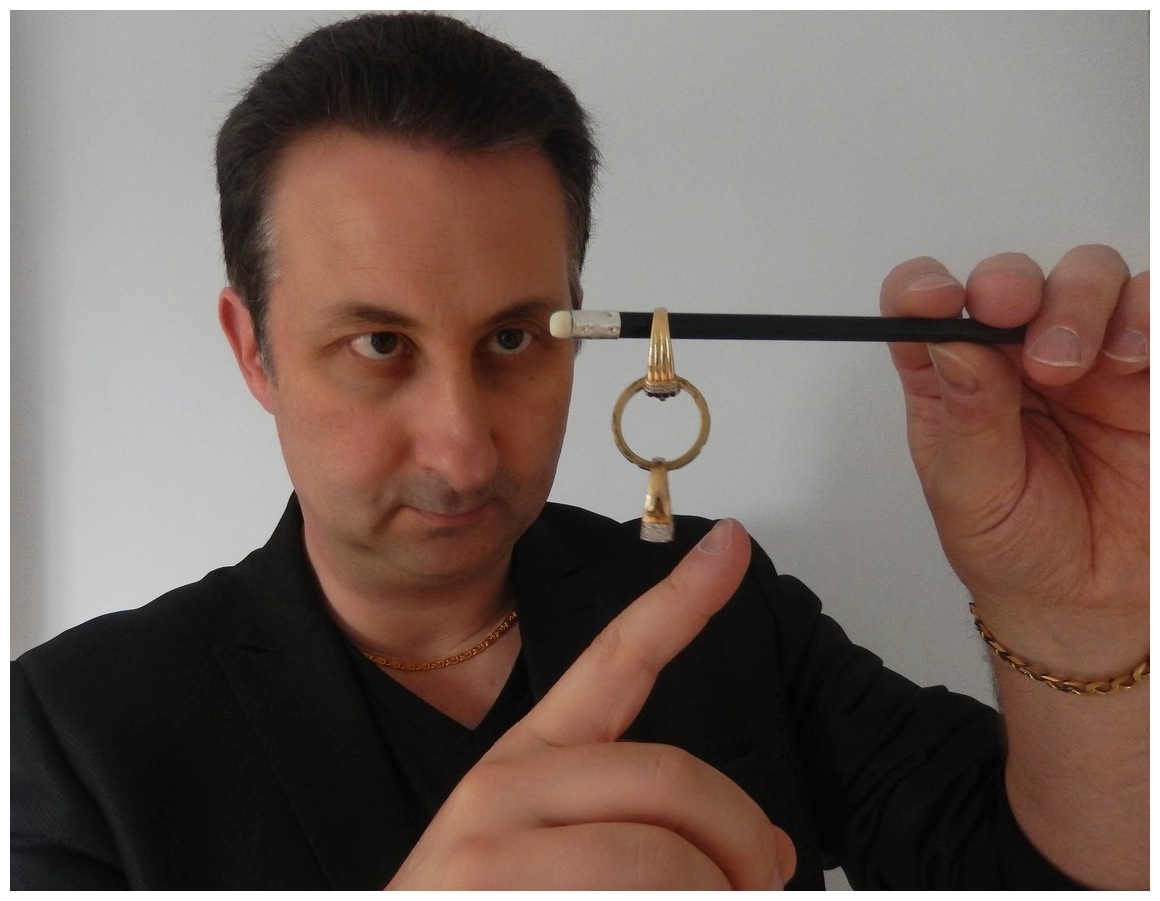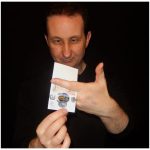
Practice Makes Magic: 7 Tips to Practise Magic Tricks Effectively


Andy Field is a professional magician, offering table top magic, sleight of hand illusions, mind reading and more, for a variety of occasions. Over the years Andy has built a strong global following, boasting over 5,000,000 views on his YouTube channel and an array of reviews across multiple platforms. Having amassed experience as a wedding magician, party magician & close up magician, Andy is seen as one of the industries most tried and tested professional magicians.
With every perfected trick, move, and piece of choreography, there are hours and even days of practice behind the scenes before hitting the spotlight. For magicians, a performance isn’t just about learning magic tricks, it’s about working on your timing, confidence and building on the ability to connect with an audience.
Professional magician Andy Field knows this more than most. Based in Gloucester but with years of experience as a magician for weddings across the country, corporate events, and parties, Andy understands how vital consistent, focused practice is to achieve those jaw-dropping moments. In this guide, Andy shares his seven practical tips to help you learn magic more effectively to make your performances shine.
Tip 1: Set Clear Mini Goals
As much as we would like to practice card tricks every day, the reality is that life and other priorities get in the way, leading to little progress. That’s why it’s recommended to break your goals into small, achievable steps. Instead of trying everything all at once, focus on perfecting your hand placement, mastering your timing, or refining your pattern one trick at a time.
Think SMART goals. Specific, measurable, achievable, relevant and time-bound. Practice the double lift for ten minutes until you can perform it five times in a row without a hitch. These mini goals will keep your practice both purposeful and rewarding, helping you improve faster overall.
Tip 2: Practise with Focus, Not Repetition
Whilst we all think practice makes perfect, there’s a difference between deliberate practice and mindless repetition. Repeating the same trick over and over without any real attention to detail reinforces bad habits. Slow it down and hone in on the areas that are a challenge, from your grip to angles.
If you’re finding mastering complex magic tricks difficult, break them into smaller elements. With a coin vanish, for instance, spend time on sleight of hand before adding your presentation. This focused time for practice builds muscle memory, unlike unfocused repetition, which can waste valuable time. Quality beats quantity, remember.
Tip 3: Record and Review Yourself
It’s never pleasant watching yourself perform on camera for the first time, but it can honestly be a great positive. Recording your magic sessions on your phone helps you catch subtle mistakes in handling or delivery that you may not notice in real time.
This really is an effective way to practice, as you’ll be paying attention to your body language, facial expressions, and timing. Look at whether your hands are too tense, or your eyes give away a secret move. Keep a practice log or notebook to write down what worked well and what needs room for adjustment. Think of it as a way to keep you motivated in your progress and accountable for your improvement.
Tip 4: Practise in Short, Focused Bursts
Perhaps you’ve got an empty window to practice for hours over the weekend. Instead of running through tricks over and over, Andy suggests short 10-20 minute focused sessions are much more ideal throughout the day, as you’ll be rested and won’t hurt your progress. In the long run, this keeps your concentration sharp and prevents fatigue.
Tip 5: Perform for Real People
Performing live in front of an audience is a real thrill, but no amount of solo practice can prepare you for the reality of stepping on stage in front of people. Once you’ve built up your confidence, try a few tricks in front of friends and family. You’ll experience feelings of nerves, distractions and audience reactions which help you grow as a magician.
Don’t go too big too soon, start small. From a quick card trick at a dinner table to a coin trick at work. You’ll be able to notice how your audience reacts, where their focus lies, and what makes them laugh or gasp in amazement. This feedback is highly valuable to fine-tune your routine. Timing, confidence and adaptability are achieved beyond the mirror.
Tip 6: Master a Few Tricks Before Moving On
There’s a temptation to be armed with dozens of new tricks, but mastery of magic comes from depth, not breadth. Take the time to focus on perfecting two or three strong routines, try them out on an audience, and then expand your repertoire. A well-rehearsed routine will impress more than a dozen half-hearted and half-learned ones.
With years in the industry as a professional magician, Andy emphasises that mastering a small yet powerful set of magic tricks helps to boost your confidence and perform seamlessly under pressure. From a close-up wedding setting to a stage show, you’ll be able to perform flawlessly in any environment with your signature act.
Tip 7: Work on Presentation and Psychology
One key point about magic is that performance is key. Practise how you interact, make eye contact, and direct attention. Factors such as timing, misdirection, and audience management can transform a simple trick into something memorable.
Real-world conditions completely change the environment you’re performing in. There’s background noise to contend with, interruptions and even different lighting. Visualisation is always a helpful tool. By combining technique with psychology, you’ll be ready for a genuine theatre.
Bonus Tips
Here are a few extra ways to help you refine your practice on top of the seven steps to take your magic further:
- Finger dexterity and warm-ups: Perform any practice or performance, spend a few minutes loosening your fingers for card tricks and coin routines, as it improves precision and control.
- Shadow practice: Watch other skilled magicians in action and mimic their movements in front of a mirror while observing their rhythm and audience engagement.
- Join magic clubs: Connecting with local or online magic communities allows you to share experiences and get feedback from peers, which can accelerate your learning.
- Use cue cards or scripts: If at first you feel uncomfortable with public speaking, write down your presentation lines on cue cards to refine your storytelling while you learn magic.
We’ve all been dazzled by effortless magic on stage, but behind every performance is hours of countless and focused practice. The more you build on your craft, the more natural performing magic will become. Be patient, consistent, and intentional, and a smooth set will be second nature.
Whether you’re a hobbyist or an aspiring professional magician, it’s a fantastic environment to be part of. Andy Field performs across the country for a wide variety of events, from corporate days in London to being the leading magician in Bath for weddings and beyond. Explore Andy’s magic tutorials, live shows or book him for your upcoming event.
MAKE AN ENQUIRY
Oops! We could not locate your form.

